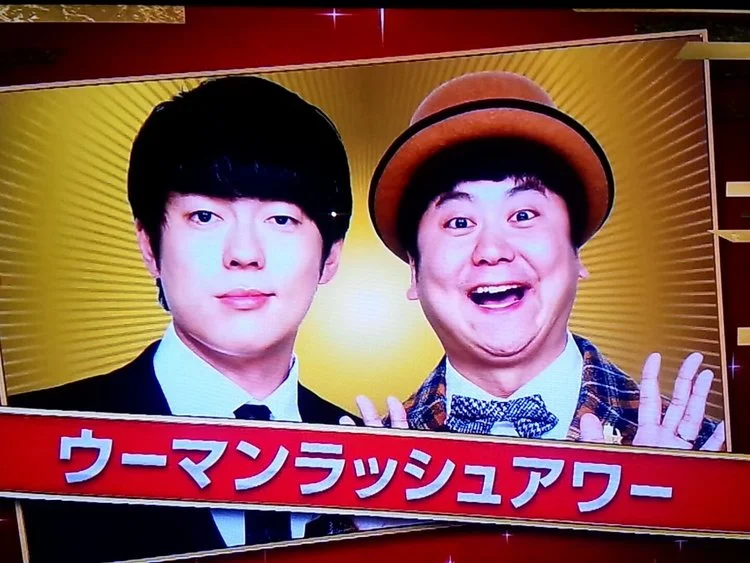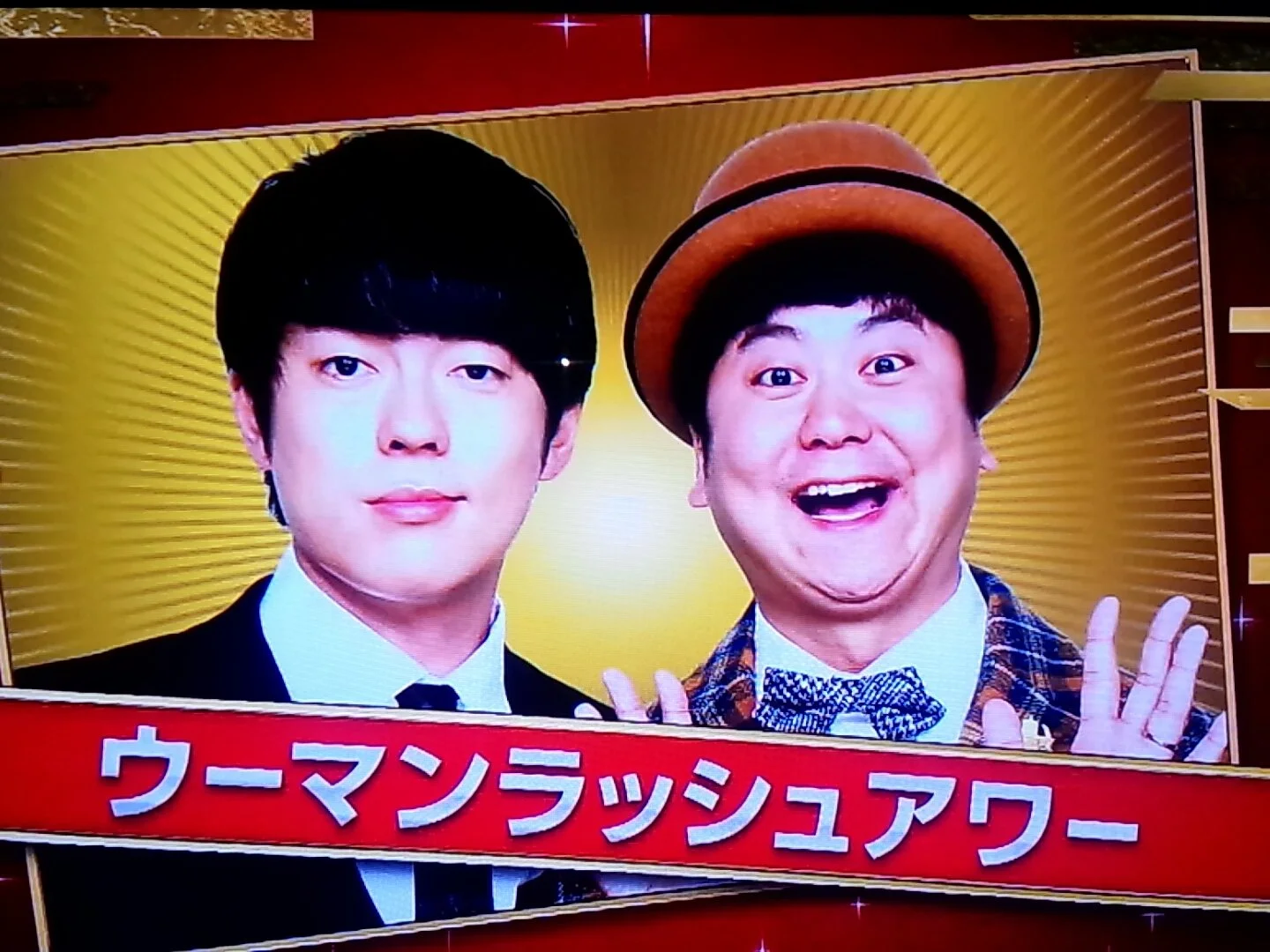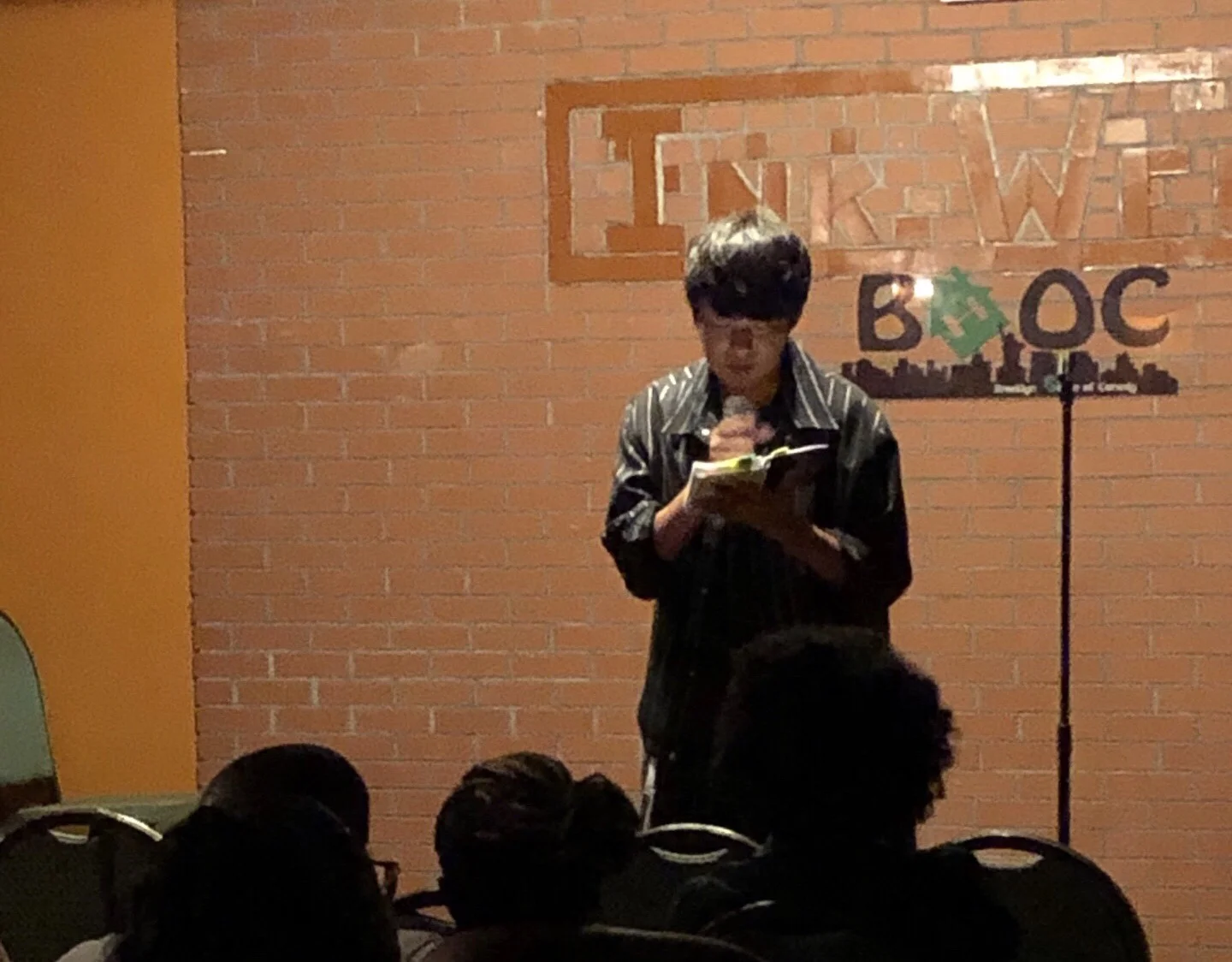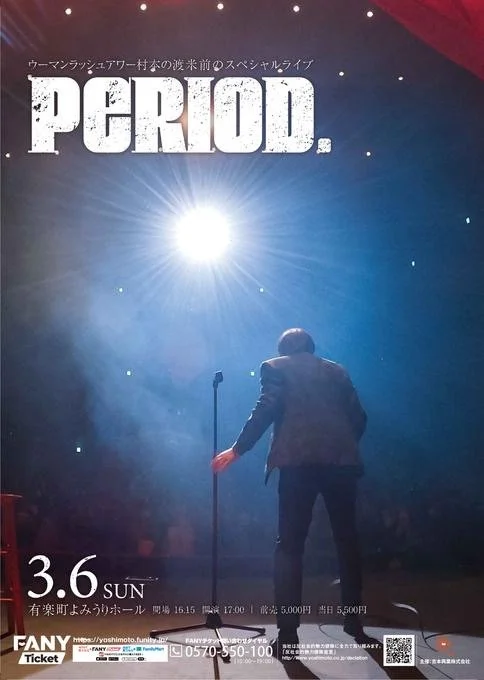Woman Rush Hour's Political Routine on the MANZAI Sets the Comedy World on Fire
As this site has stated before, in Japan comedians in general and especially those on television rarely if ever perform routines that touch on political and societal problems. That’s why when the manzai duo of Woman Rush Hour (both male performers by the way) performed a routine on the yearly comedy tournament show the MANZAI 2017 that covered everything from North Korea missiles to the Okinawa US base problem to the nuclear power plant problem and more it made major waves in the comedy world and beyond. Within hours of the airing, the keywords of “Woman Rush Hour” and “political satire” were trending on the Internet with many people on social media coming out in support (and opposition) of the duo, complementing both how funny it was and how brave they were for performing the routine. I, myself, was unable to watch the performance when it aired on television and had to go back to find the video online after the fact (with two children under 3 years old watching anything besides Thomas the Tank Engine is nearly impossible). The performance blew me away. Speaking extremely fast, Muramoto, the writer of the routine, sped through a humorous but biting critique of the following issues:
1. How comedians are now taking the place of news commentators while ironically commenting on other comedians that make the news because of scandals
2. The high concentration of nuclear power plants in Fukui prefecture (his home prefecture)
3. How the countryside (especially Fukui) is dying because of people moving away or lack of economic development
4. The failure of Tokyo governor Koike
5. The many problems facing Okinawa (the overconcentration of US military bases and more)
6. The number of people still in temporary housing in Kumamoto a year and a half after a major earthquake hit while the government spends a huge sum of money on a new stadium for the Tokyo 2020 Olympics
7. The uneven relationship between the US and Japan
8. The North Korea problem
9. How news covers meaningless celebrity and politician scandals while ignoring the important stories due to the general public's lack of awareness of what matters
Seeing a routine cover just one of these issues in Japan is unusual. Seeing Woman Rush Hour (WRH) cover all these in just five minutes, uncut by television producers, is something akin to a miracle for those who appreciate political satire and topical humour. I certainly was not alone in my amazement as regular news outlets as well as newspapers, radio, streaming, and other media rushed to discuss the routine. However, before getting into the reactions I want to break down and highlight some parts of the routine that I have translated into English.
The Routine
First, let's take a look at a few segments of the routine. The premise of the routine is that one person wants to live in a certain area (Fukushima, Tokyo, Okinawa) but must first prove their love for the area by answering some questions from someone from the area.
When one wants to live in Okinawa the following routine takes place:
Muramoto: What problems is Okinawa dealing with right now?
Nakagawa: The relocation of the US base to Futenma problem
Muramoto: What else?
Nakagawa: The Takae heliport problem
Muramoto: Those are problems for just Okinawa to deal with right?
Nakagawa: No, those are problems that all of Japan has to deal with.
Muramoto: And the Olympics that will be held in Tokyo?
Nakagawa: Something that all of Japan will celebrate
Muramoto: And the Okinawa military base problem?
Nakagawa: Something foisted off on Okinawa only
Muramoto: And fun things are?
Nakagawa: Something for all of Japan.
Muramoto: Troublesome things are?
Nakagawa: Something we pretend not to see
Muramoto: And how much are we paying the US military to stay here?
Nakagawa: 9465 million yen
Muramoto: And what is that budget called?
Nakagawa: The “compassion” budget
Muramoto: Before we show compassion to America we should…
Nakagawa: Show compassion to Okinawa!
Muramoto: Welcome to Okinawa! You may live here!
That alone would be shocking enough to be featured in a manzai routine but Muramoto was not done. After focusing on Kumamoto, Tokyo, and even North Korea Muramoto shifts his attention to the US.
Muramoto: Which country is America best friends with?
Nakagawa: Japan.
Muramoto: And what does that best friend of a country do?
Nakagawa: Buy lots of missiles from the US
Muramoto: What else?
Nakagawa: Buy lots of jets from the US
Muramoto: What else?
Nakagawa: Buy lots of battleships from the US
Muramoto: That country is not a best friend!
Nakagawa: It’s a friend of convenience!
The last part of that bit may not seem that funny because it loses a little in the translation. Muramoto uses the term "naka ga ii kuni" (a country you are very friendly with) in the beginning (translated here as "best friends") and then turns it around in the end, clearly stating that they are not "naka ga ii kuni" but "tsugou ga ii kuni". This term "tsugou ga ii" can be translated as meaning something of convenience and it carries a negative connotation.
Finally, after covering a wide range of topics at high speed, Muramoto shifts to focus on Japan in general. Like the other places covered in the routine Nakagawa starts out by asking to be allowed to live in Japan and Muramoto, playing the part of a Japanese person who will test Nakagawa's devotion, starts in.
Muramoto: What are the problems that Japan is dealing with now?
Nakagawa: The revitalization of disaster areas (of the Great Fukushima earthquake) problem.
Muramoto: What else?
Nakagawa: The nuclear power plants problem.
Muramoto: What else?
Nakagawa: The Okinawa military base problem.
Muramoto: What else?
Nakagawa: The North Korea missile problem.
Muramoto: But what’s actually covered by the news?
Nakagawa: Politicians’ verbal gaffes
Muramoto: What else?
Nakagawa: Politicians’ affairs
Muramoto: What else?
Nakagawa: Celebrities’ affairs
Muramoto: Are those really important news stories?
Nakagawa: No, they’re just superficial problems.
Muramoto: So why do they become news?
Nakagawa: Because they get good ratings.
Muramoto: And why do they get do ratings?
Nakagawa: Because there are people who want to watch them.
Muramoto: So what we really should be worried about is?
Nakagawa: More than the disaster area recovery problem
Muramoto: More than the nuclear power plant problem
Nakagawa: More than the Okinawa military base problem
Muramoto: More than the North Korea problem
Nakagawa: Is the low level of awareness shown by the citizens!
(Audience laughs)
Muramoto: (speaking back to the mike and pointing at the audience) I’m talking about you people!
Rarely have I seen a comedian in Japan that while amusing the audience disrespects them directly, saying that they are the biggest problem Japan is dealing with. Even with that comment, seemingly added to the end of the routine, the audience ate it up.
The Reaction
The reaction for this one routine was greater than anything I have seen in recent years. I had missed the broadcast but because of reading the reactions of many regarding this routine I had to go back and watch it myself. In general, there is an overlying attitude, perhaps from inside the comedy world, perhaps coming from outside this world in the form of media and television companies, that politics or any subject deemed touchy should be completely left out of Japanese owarai (comedy). This self-censorship, unfortunately, permeates the media. Muramoto, in writing and performing this routine, on television mind you, essentially chooses to go against the grain in a huge way. Naturally, in a country where we are reminded "the nail that sticks out gets hammered down" a thousand times, this could create some backlash against Woman Rush Hour.
To be certain, there were comments against Muramoto and WRH on social media. Here is a handful:
"This is a low-level impersonation of (Beat) Takeshi"
- Anonymous 2017/12/18 18:38[i]
“I saw Woman Rush Hour’s routine and it wasn't funny. More than that I don’t want to hear about such troublesome topic in manzai”[ii]
- (@hayashi_r) December 18, 2017
“Muramoto was brave (to perform this) and he may have been correct but that’s not want I want to see on a program such as this. I just wanted to have fun and laugh and suddenly I felt like I was being lectured.”[iii]
These kinds of reactions can be expected and certainly not surprising. What I took note of was the seemingly larger positive reaction to the routine.
“I saw Woman Rush Hour’s manzai on Youtube. The guts shown by Muramoto and the guts shown by Nakagawa to accept a comedic partner such as him were divine. Now, a sense of stagnation has been coming over this country hard and powerfully. A Japan that can’t laugh. Everyone has their likes and dislikes and some people may have thought this manzai wasn't funny but I thought they were really great.”
- (@nico_bambi) December 17, 2017[iv]
“I saw Woman Rush Hour this morning and was numb. Up until now almost no one on television ever talked about things that were important to me. Not talking about topics like these have become a punch line itself in a country such as this. Wrapping problems such as these in laughter really shows the strength of comedy. I also think it was great that the network broadcast this.”
- (@yuu_iwatsuki) December 18, 2017[v]
“The video footage was erased (online) but I was able to hear the audio of the routine. The applause and interest in Woman Rush Hour’s routine are unstoppable. That’s why I will go to the live show and meet Muramoto in person. The age of meaningless comedy on television is over.”
- @minako_c December 19th, 2017 (directly from Twitter)
“From Yoshimoto scandals, the nuclear power plant problem, Okinawa military base problem…to broadcast a routine about such issues the program THE MANZAI too was great.”
- @izfan31, December 19th, 2017 (directly from Twitter)
"Muramoto on THE MANZAI was very funny. There are many people with no interest in politics and with TV covering the scandals and affairs of crappy celebrities I thought this kind of coverage is strange so when Muramoto pointed this out (in his routine) I was overjoyed. I will support him (from now on)."
- @2273kyu, December 28th, 2017 (directly from Twitter)
"'Lack of interest by each citizen is the enemy of democracy'. This is exactly what Muramoto was pointing out on THE MANZAI when he last said, "I'm talking about you people!"'
- @for_goodfor, December 25th, 2017 (directly from Twitter)
Perhaps the most interesting reaction was that of Hitoshi Matsumoto of the popular duo Downtown. Earlier in the year, he clashed with the neurologist and sometime TV personality Kenichiro Mogi when he wondered why comedians in Japan didn't challenge those in power in their routines. Matsumoto took exception with the comments, essentially agreeing with the sentiment that politics and comedy don't mix. (I'd like to cover the dispute between Mogi and Matsumoto in more depth at a later date) Matsumoto had also come under fire in some circles for having lunch with Prime Minister Abe. After the MANZAI routine by WRH Matsumoto's comments were basically positive but subdued. "I thought it was good but it would be hard for the next act to follow that." [vi]
(It should also be noted that after the routine aired Muramoto suddenly ended his streaming weekly TV show "The NIGHT". Unconfirmed rumours that this was due to some sort of pressure from the government or some other sources have been denied by Muramoto but this is still a developing story)
What Does This Mean for the Future of Manzai?
So does this outpouring of support and interest in WRH's political routine mean that such comedy will finally be accepted on television and on stage? That's hard to say but what this possibly did prove is that there is a market if not a thirst for this style of comedy. No one should expect a rush of political comedy in Japan but people certainly should keep an eye on Muramoto and WRH. Judging from his comments before and after the performance Muramoto has put a lot of thought into staking out this somewhat dangerous career path. One look at his Twitter account and one quickly notices his banner and profile picture consist of photos of Richard Pryor, George Carlin, and Lenny Bruce, three American comedians who were never shy to speak their minds, no matter what the response from society. Perhaps we can expect such from Muramoto and the duo Woman Rush Hour in the future. One can only hope.
Below you can hear an audio recording of Woman Rush Hour's routine from the MANZAI. Listen to it before it gets removed if you can.
[i] https://www.excite.co.jp/News/smadan/E1513584825649/
[ii] https://news.nifty.com/article/item/neta/12189-20161422240/
[iii] https://news.nifty.com/article/item/neta/12189-20161422240/
[iv] https://news.nifty.com/article/item/neta/12189-20161422240/
[v] https://news.nifty.com/article/item/neta/12189-20161422240/
[vi] Wideshow, Fuji TV, Dec. 24, 2017




